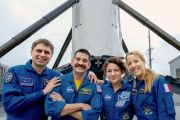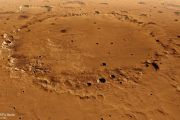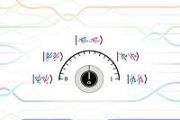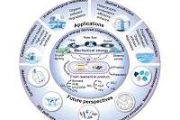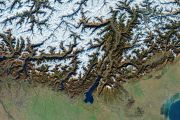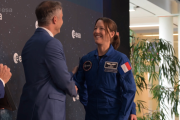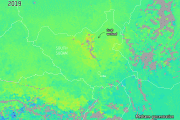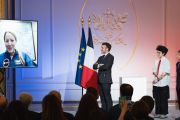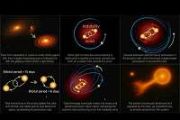
Copernical Team
Sandblasting winds sculpt Mars landscape
 Martian winds lift sand grains into the air and drive them across the surface, where they erode soft sedimentary layers and gradually carve elongated grooves and ridges near the planet's equator. The remaining ridges, mounds, or columns, known as yardangs, stand above the surrounding terrain and often extend for tens of kilometres in the direction of the prevailing winds.
In northern Eumen
Martian winds lift sand grains into the air and drive them across the surface, where they erode soft sedimentary layers and gradually carve elongated grooves and ridges near the planet's equator. The remaining ridges, mounds, or columns, known as yardangs, stand above the surrounding terrain and often extend for tens of kilometres in the direction of the prevailing winds.
In northern Eumen Lunar spacecraft exhaust could obscure clues to origins of life
 Over half of the exhaust methane from lunar spacecraft could end up contaminating areas of the moon that might otherwise yield clues about the origins of earthly life, according to a recent study. The pollution could unfold rapidly regardless of a spacecraft's touchdown site; even for a landing at the South Pole, methane molecules may "hop" across the lunar surface to the North Pole in under two
Over half of the exhaust methane from lunar spacecraft could end up contaminating areas of the moon that might otherwise yield clues about the origins of earthly life, according to a recent study. The pollution could unfold rapidly regardless of a spacecraft's touchdown site; even for a landing at the South Pole, methane molecules may "hop" across the lunar surface to the North Pole in under two Second ESCAPADE spacecraft completes key trajectory fix on path to Mars
 NASA's twin ESCAPADE spacecraft are back on a fully synchronized path to Mars after mission controllers successfully carried out a critical trajectory correction maneuver for the second probe on Jan. 6. The burn followed a brief pause in December 2025, when engineers delayed the attempt to investigate low thrust seen during earlier correction efforts on one of the two small satellites.
The
NASA's twin ESCAPADE spacecraft are back on a fully synchronized path to Mars after mission controllers successfully carried out a critical trajectory correction maneuver for the second probe on Jan. 6. The burn followed a brief pause in December 2025, when engineers delayed the attempt to investigate low thrust seen during earlier correction efforts on one of the two small satellites.
The The next great space race: Building data centers in orbit
Verifying that you are not a bot
Aegis Aerospace and United Semiconductors plan in orbit semiconductor materials plant
 Aegis Aerospace Inc. has entered into a partnership with United Semiconductors LLC to develop semiconductor manufacturing capabilities in low Earth orbit as part of a new advanced materials production platform. The collaboration follows a recent grant agreement between Aegis Aerospace and the Texas Space Commission to design and operate an in-space manufacturing system for advanced materials in
Aegis Aerospace Inc. has entered into a partnership with United Semiconductors LLC to develop semiconductor manufacturing capabilities in low Earth orbit as part of a new advanced materials production platform. The collaboration follows a recent grant agreement between Aegis Aerospace and the Texas Space Commission to design and operate an in-space manufacturing system for advanced materials in K dwarf survey maps stellar neighborhood for habitable worlds
 A Georgia State University astronomy graduate student has led a new survey of nearby K-type stars to identify targets where Earth-like planets could provide conditions suitable for life. Sebastian Carrazco-Gaxiola presented the results at the January 2026 meeting of the American Astronomical Society in Phoenix, Arizona.
The project delivers the first comprehensive spectroscopic census of t
A Georgia State University astronomy graduate student has led a new survey of nearby K-type stars to identify targets where Earth-like planets could provide conditions suitable for life. Sebastian Carrazco-Gaxiola presented the results at the January 2026 meeting of the American Astronomical Society in Phoenix, Arizona.
The project delivers the first comprehensive spectroscopic census of t NASA selects industry partners to mature Habitable Worlds Observatory technologies
 NASA has chosen a set of industry proposals to advance technologies for its Habitable Worlds Observatory concept, a planned flagship space telescope intended to directly image Earth-like planets around Sun-like stars and analyze their atmospheres for potential signs of life.
The observatory is also expected to support a broad astrophysics program and contribute to planning for future human
NASA has chosen a set of industry proposals to advance technologies for its Habitable Worlds Observatory concept, a planned flagship space telescope intended to directly image Earth-like planets around Sun-like stars and analyze their atmospheres for potential signs of life.
The observatory is also expected to support a broad astrophysics program and contribute to planning for future human China geospatial information industry approaches 1 trillion yuan output
 China's geospatial information sector, a key component of digital mapping and positioning, is approaching a scale of 1 trillion yuan, according to the Ministry of Natural Resources.
The industry is expected to have exceeded 900 billion yuan in output for 2025, representing growth of more than 30 percent compared with 2020, and it employs more than 4 million people.
At the core of the
China's geospatial information sector, a key component of digital mapping and positioning, is approaching a scale of 1 trillion yuan, according to the Ministry of Natural Resources.
The industry is expected to have exceeded 900 billion yuan in output for 2025, representing growth of more than 30 percent compared with 2020, and it employs more than 4 million people.
At the core of the Milky Way black hole flare leaves X ray echoes in nearby gas cloud
 Our galaxy's supermassive black hole is among the faintest known, yet new observations indicate it was far more active in the recent past on cosmic timescales. Sagittarius A*, at the Milky Way's center, appears to have produced a powerful X ray flare within the last few hundred to 1,000 years, leaving an observable imprint in surrounding gas.
Michigan State University researcher Stephen Di
Our galaxy's supermassive black hole is among the faintest known, yet new observations indicate it was far more active in the recent past on cosmic timescales. Sagittarius A*, at the Milky Way's center, appears to have produced a powerful X ray flare within the last few hundred to 1,000 years, leaving an observable imprint in surrounding gas.
Michigan State University researcher Stephen Di Jupiter's moon Europa has a seafloor that may be quiet and lifeless
 The giant planet Jupiter has nearly 100 known moons, yet none have captured the interest and imagination of astronomers and space scientists quite like Europa, an ice-shrouded world that is thought to possess a vast ocean of liquid salt water. For decades, scientists have wondered whether that ocean could harbor the right conditions for life, placing Europa near the top of the list of solar syst
The giant planet Jupiter has nearly 100 known moons, yet none have captured the interest and imagination of astronomers and space scientists quite like Europa, an ice-shrouded world that is thought to possess a vast ocean of liquid salt water. For decades, scientists have wondered whether that ocean could harbor the right conditions for life, placing Europa near the top of the list of solar syst 

